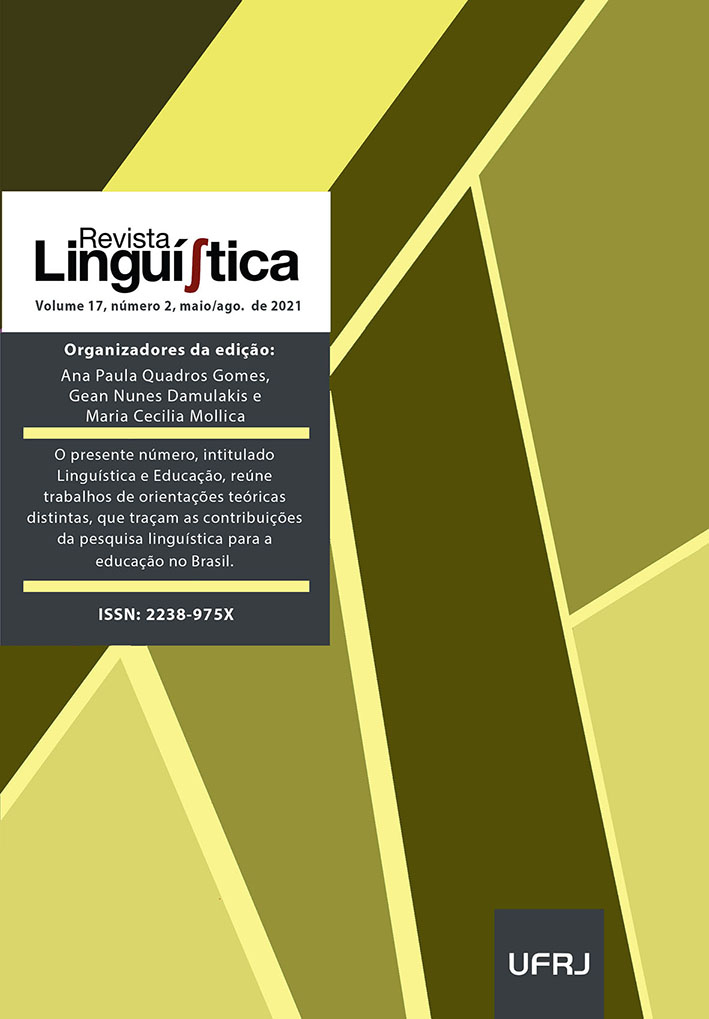Contextualized grammar and critical literacy: the use of modalizing adjectives in the tale Lumbiá, by Conceição Evaristo
DOI:
https://doi.org/10.31513/linguistica.2021.v17n2a42784Keywords:
contextualized grammar, adjective, critical literacy.Abstract
This work aims to propose an activity for the teaching of adjectives, especially modalizing adjectives, considering the Contextualized Grammar, emphazing the role of this category in the construction of the tale. Considering that the adjective attributes a singular property to the element that is called by the noun, according to Neves (2018, p. 283), the relevance of this grammatical category is perceived not only for the tales, but for any genres of narrative sequence. The relevance of this study is the fact that, when considering the social function of grammar, it contributes for students to develop their communicative competence as well as critical literacy, which will lead them to act more efficiently in the interaction with the most diverse texts in the most diverse situations. In addition, we believe the approach proposed in this study is more consistent with what the official documents related to basic education advocate, such as the National Curriculum Parameters (1997) and the Common National Curricular Base (2018). Assuming the conception of language as interaction, we defend that the grammar cannot be studied outside the contexts of use, being objects of analysis the functions that each of the grammatical categories fulfills in the construction of the meanings of the text. This proposal is based, therefore, on the functionalist assumptions, from which language is seen as a social phenomenon, a communication tool, adaptable to the pressures arising from the various situations of interaction in which it is used.Downloads
Published
Issue
Section
License
Authors who publish in the Revista Linguí∫tica agree with the following terms:
The authors maintain their rights, ceding to the journal the right to first publication of the article, simultaneously submitted to a Creative Commons license permitting the sharing with third-parties of published content as long as it mentions the author and its first publication in the Revista Linguí∫tica.
Authors may enter into additional agreements for the non-exclusive distribution of their published work (for example, posting in online institutional or non-profit repositories, or book chapters) so long as they acknowledge its initial publication in the Revista Linguí∫tica.

The journal Revista Linguí∫tica is published by the Post-Graduate program in Linguistics of UFRJ and employs a Creative Commons - Attribution-NonCommercial 4.0 International (CC-BY-NC).









